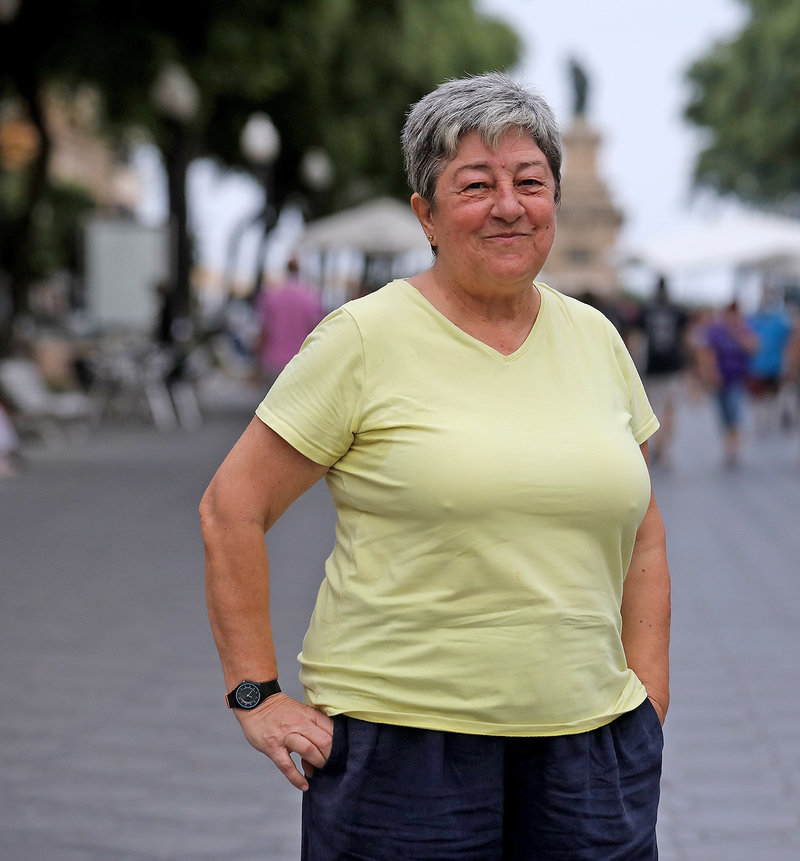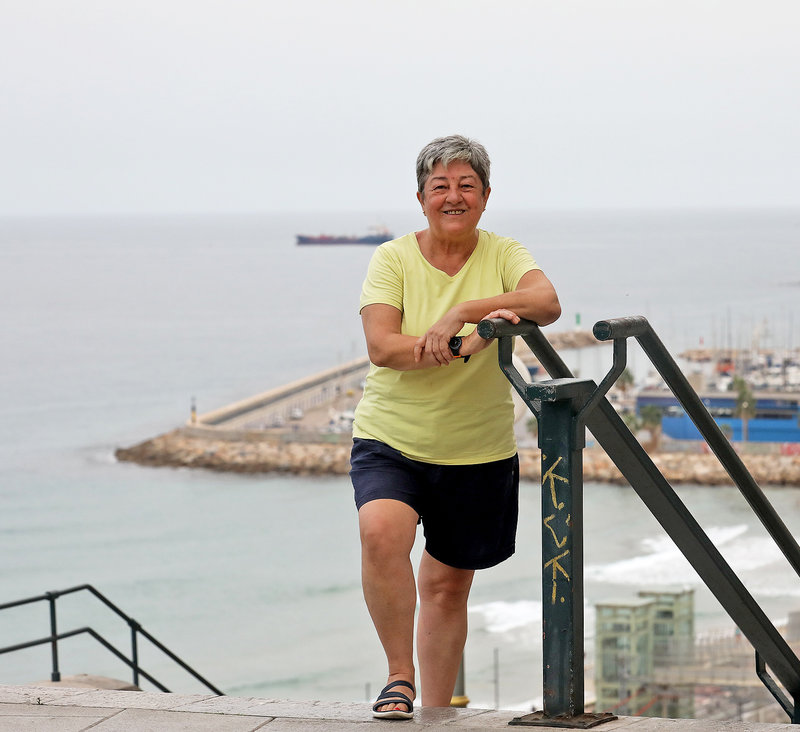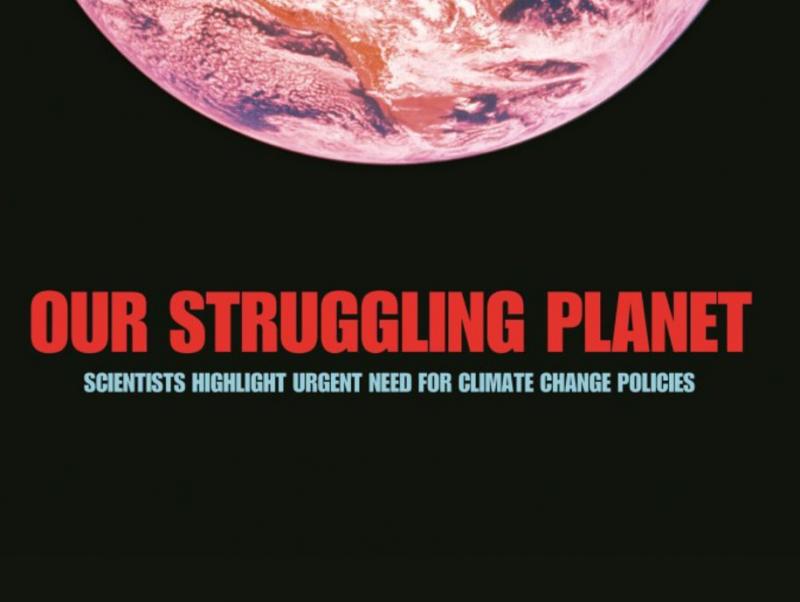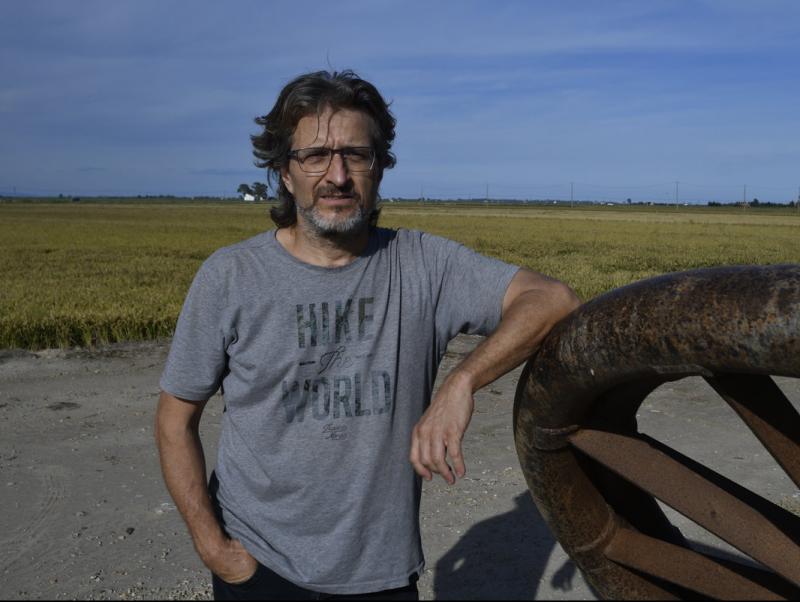Manola Brunet
CHAIR OF THE WORLD METEOROLOGICAL ORGANISATION’S CLIMATOLOGY COMMISSION. PROFESSOR OF CLIMATOLOGY AT THE URV
“We’re losing the seasons”
One of the most respected voices in the climate change debate, Brunet says there is still time to stop global warming if politicians take bold action now, but trusting everything to long-term agendas has its risks
A September of rain, but also of hot nights. Is this weather normal?
I don’t remember seeing it before, but that doesn’t mean it hasn’t happened, we need reliable data to prove it. It’s more frequent in mid-August, but in our country we’ve already seen how summer is expanding into autumn, although spring has also been affected. We’re increasingly expanding towards what would normally be summer conditions. This situation is not a climatic extreme, but rather an unusual situation.
Are we losing spring and autumn?
We’re losing all of the seasons. The different studies we’ve done at the URV on the evolution of temperatures in the whole of the Iberian Peninsula in the last 40 years show how the seasons heating up most are summer and spring, followed by autumn and then winter. That’s not to say that autumn or winter aren’t heating up, they’re almost the same, but it’s a little faster and more notable in summer and spring. Now the winter is much warmer than it was in the 50s or 60s and much warmer than it was in the 19th century, but the biggest warming has occurred in the summer and spring. We’re in an area of Mediterranean climate, which is already characterised by a long warm season, a benign winter and some transitional seasons, and if you add warming to these characteristic features, the result is warmer springs, summers and autumns.
Should we attribute it all to climate change or are these cycles normal?
Although we don’t carry out studies to attribute the trend we’ve estimated to a cause, I’m absolutely convinced that the main factor in the warming we’ve been experiencing from the early 1970s to the present day is the increase in greenhouse gases in the atmosphere and therefore human influence on the climate. Overall, we’ve found that the warm phase that affected the planet as a whole in the middle of the last century – from the 1920s to the 1940s – may have been more regulated or modulated by factors of natural origin, such as the evolution of sunspots, as well as an increase in greenhouse gases. There’s been a second episode of global warming since the late 70s, which can’t be explained by the strengthening of sunspots and can only be explained by the increase in concentrations of greenhouse gases.
We’re in an area where the temperature rise is more pronounced than in other regions, aren’t we?
In the Mediterranean area and in the Arctic, the increase in temperature is more pronounced; these hot spots are of concern. We’ve estimated that in the western, and now also in the eastern Mediterranean, the increase in temperatures is double the increase recorded on a global scale. In the Arctic, there are fewer information points and fewer data, but here we have longer series of studies, we’ve studied from 1850 to the present day, and if we calculate the total accumulated trend for this period, it almost doubled the rate of warming on a global scale. This should worry us locally, because global warming data are worldwide and it’s clear that the earth is warming up more than the oceans, which logically transmit heat to the depths and the surface is never as warm. The earth is generally warming, but there are some regions, such as the southeastern United States, where the warming trend is not statistically significant and remains more or less the same as before.
Have we only addressed climate change after it became a climate emergency? And are we in time to reverse the situation?
We still have time if governments and the companies emitting the greenhouse gases really get down to work. It hasn’t been taken seriously enough, regardless of the “greenwashing” they are trying to implement, whereby they say we’re facing a unique and unprecedented environmental challenge and make speeches like great word managers when they are regulating very little, badly and with a lot of delay. There has to be an end to shifting responsibility or solutions for climate change onto society, like calling for more efficient use of energy or turning off machines to save energy costs and emit less. Small measures like these lead nowhere, what’s needed are profound changes in the system and model of life and production that will lead us to a more environmentally sustainable world. The IPCC [Intergovernmental Panel on Climate Change] says that if we start now we’ll be in time to substantially reduce emissions by 2030, with the goal of zero net emissions by 2050. This doesn’t tell the full story, because this concept of zero net emissions not only accounts for real emissions but also accounts for and counteracts the elimination of excess carbon dioxide contained in the air that engineering can achieve in the future. I’m also optimistic and sure that efficient technologies will be developed, but to go from that to say that there will be no new emissions because we will have these technologies and be able to reduce concentrations because we will absorb carbon dioxide from the air in 2050... I don’t know, this is dangerous because in reality what you’re saying is pollute now and pay later, and with a scenario like that neither governments nor the big companies will do their homework.
What needs to be done urgently?
What is needed is to clearly regulate and develop specific regulations to enforce the law. It’s true that laws have been passed in the European, Catalan and Spanish parliaments. However, most scientists say that these are not enough, that they have fallen short, that they don’t get to the root of the problem, which is the energy system we have now, based mainly on carbon.
When plans are presented to promote renewable energy they’re rejected. People don’t want wind turbines or solar panels next to their house.
There are things that politicians like because it doesn’t cost them a penny and it puts the responsibility on the people. I’m convinced that people are the simplest way of looking at solving the problem and I wouldn’t say that there is opposition from society, perhaps some group with a voice in the media... If you explain that energy transformation is needed, that we must base the future on a specific form of energy and that, since fusion energy has not yet been invented, renewable and clean energies are needed that will contribute to improving the health of the planet and of the people... I’m sure people will understand this and we’ll transform our habits without too much trouble, as long as the rules of the game allow it. We cannot long for the times of our childhood because if we do nothing everything will change because of climate change.
The L’Espluga floods in 2019, storm Glòria, floods in Belgium and Germany this summer, and now Alcanar. Will we have to get used to this?
Yes, the scientific community is clear on this, and in the case studies that are being carried out, it’s already clear that global warming is leading to an increased frequency and intensity of climate extremes. Climatic, meteorological and hydrological extremes have always existed, with anomalous situations when it comes to rain, wind or heat, and now climate change adds to these natural variations, exerting a positive force on them; that is, if the atmospheric circulation mechanisms determined that in an area of the planet there were high temperatures, for example, then climate change adds to this and makes these temperatures even higher. The WWA [World Weather Attribution] group, which attributes climate causes, has done many studies on specific situations, such as the heatwave in Canada in June or the floods in Germany, and they show that without climate change these situations would not have occurred with the intensity that they did. Therefore, both frequency and intensity are increased by the greater energy availability of the climate system, and are therefore associated with human climate change.
You said we were still in time to reverse the situation. What will happen if we don’t react?
We’re in time not to make it any worse! It’s not the same to warm the planet by 1.5 degrees, which is already dangerous and the meteorological, climatic and hydrological extremes are already soaring and intensified, as to warm it by two degrees. At two degrees there is a 40% intensification of the extremes, so more impacts, more losses of everything. But if nothing is done, as is the case now, we’re going to see a three or four-degree increase in pre-industrial thermal levels towards the end of the century. And this figure would be outrageous, as it could trigger a situation of irreversible collapse for other systems or subsystems within the climate system, such as the oceans, the permafrost or the Amazon rainforest. That’s why I have colleagues who talk about the sixth great extinction of species, because if with a small warming of 1.1 degrees the extremes have already intensified or there has been a 6% loss of crops, then a two, but especially a three or four-degree increase, will lead to a situation of unknown consequences.
There’s talk of climate migration and desertification...
Climate change has been caused by developed nations but the consequences are being mostly suffered by the less developed countries. Droughts caused more than 600,000 deaths in 2017 and 2018. The least developed countries are more vulnerable because they don’t have the economic and financial resources to adapt to these situations and are the ones who suffer the most. But those who bear the highest costs in these extreme events are the developed countries, because they have used and articulated the territory much more and often in a completely unnatural way, occupying riverbeds and floodplains.
Considering these new climatic scenarios, are difficult measures needed, such as de-urbanising the seafront if we want to have beaches?
Completely. That’s the way it is. Among other things, one of the impacts of climate change in Catalonia, combined with the rise in sea level that is already being felt throughout the Mediterranean, is that not only do we have the typical problems regarding the salinisation of coastal aquifers, but flooding by sea storms is also becoming more frequent, coastal erosion is accelerated, and many square miles of beaches are lost. And if the government’s solution is to provide compensation for campsites, who complain that they have suffered a catastrophe, instead of designing plans to gradually move, without making too many sacrifices, removing facilities, then they’re just wasting money. It’s the same with beach regeneration: they throw sand at the problem and along comes the next storm and it’s gone. We should be opting for soft solutions that accompany natural dynamics. The existing line of coastal dunes and lagoons, which gradually disappeared in the 1960s because apartments had to be built and tourists brought in, had a role to play and no one thought about that.
interview environment
interview environment
First woman to head the WMO What changes do we already know will happen over the next ten years?
Manola Brunet (Carignan, 1955) has become an authority on climate change. She is a Full Professor of Geography at the Universitat Rovira i Virgili (URV), where she teaches climatology and directs the University’s Centre for Climate Change on its Terres de l’Ebre campus. Her expertise and research on climate change have led her to chair the World Meteorological Organisation’s (WMO) Climatology Commission, becoming the first woman to head the Commission since its founding 90 years ago. She is an international expert in the areas of instrumental reconstruction and climate analysis, and her fields of activity include research, teaching, scientific consultancy, knowledge transfer and dissemination. Since 2003, she has also held the position of “academic assistant” in the Climate Research Unit at the University of East Anglia’s Faculty of Environmental Sciences, in the United Kingdom, where she has also been a visiting professor since 2005.
Brunet explains that there will be less water availability, more aridity, a negative impact on crops, where farmers will have to establish strategies to improve their profitability and production. There will also be wildfires, exacerbated coastal erosion... “Ours is a climate that is already arid, and now the arid season is expanding and May and September are also dry.” All this, she adds, implies less sun humidity, less productivity and fewer non-irrigated crops, with irrigated crops needing more water. As a result, there will be more conflicts over water. “Lower sun humidity leads to an increased risk of fires, with the consequences of loss of vegetation, vegetation that will also be poorer,” she concludes.







